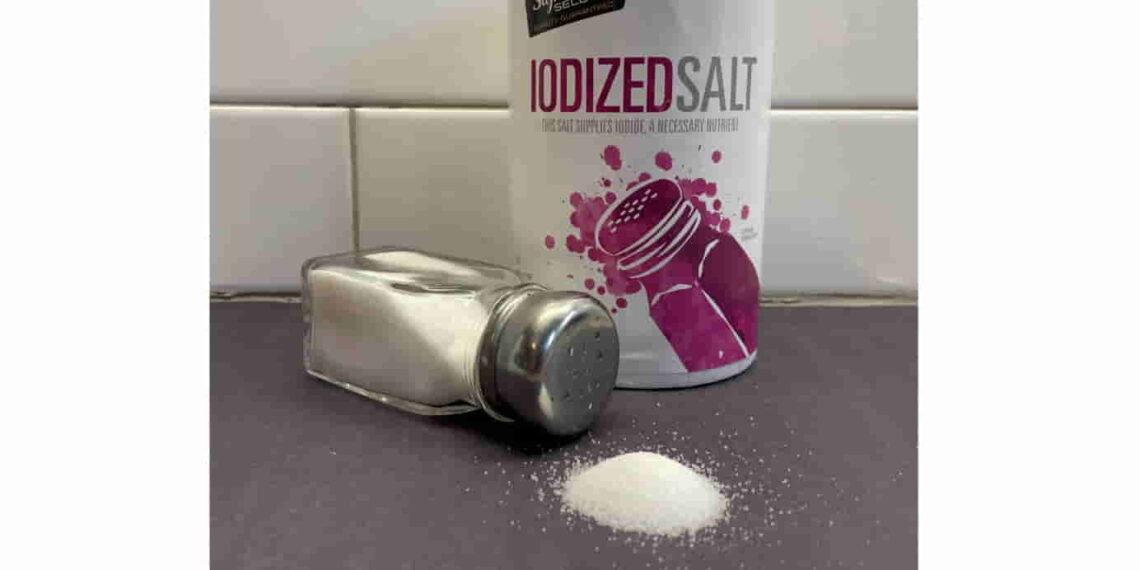Doctors Raise Alarm Over the Return of Iodine Deficiency
Doctors are concerned that iodine deficiency, once a major health issue in the early 20th century, is making a comeback. A recent case in Rhode Island highlighted the problem when a 13-year-old boy arrived at the clinic with a rapidly swelling neck. Initially puzzled, doctors soon discovered that the cause of his condition was iodine deficiency.
Iodine: A Vital Nutrient
Iodine is a trace element essential for proper thyroid function. It helps regulate metabolism and plays a crucial role in brain development, especially in children. A deficiency in iodine can lead to an enlarged thyroid, commonly known as a goiter, which causes the neck to swell. This condition was once widespread in parts of the United States, especially in areas known as the “goiter belt,” stretching from Appalachia to the Great Lakes and the Northwest.
The widespread iodine deficiency in the early 1900s was associated with stunted growth, intellectual impairments, and a condition known as “cretinism.” The solution came in the form of iodized salt, introduced in 1924, which effectively ended the iodine deficiency problem for most Americans by the 1950s.
A Shifting Diet
However, modern diets have changed, and iodine deficiency is once again becoming a concern. With the rise of processed foods, many Americans are consuming salt that is not iodized. Additionally, popular bread brands no longer add iodine, and many people now opt for non-iodized salts like kosher salt or Himalayan salt, unaware of the iodine it once provided.
Dr. Elizabeth Pearce, a leader in the Iodine Global Network, points to a significant drop in iodine levels in the U.S. population. Between the 1970s and the 1990s, iodine levels fell by 50%, primarily due to changes in diet and food production methods.
Vulnerable Groups: Pregnant Women and Children
Though most Americans are still getting enough iodine, experts are particularly concerned about pregnant women and children. Iodine is crucial for proper brain development in fetuses and young children, and even mild deficiency during pregnancy can have lasting effects. Studies have linked iodine deficiency to lower IQs and language delays in children, though the exact threshold for when problems occur remains debated.
The American Academy of Pediatrics recommends that pregnant and breastfeeding women consume 150 micrograms of iodine daily. However, a study from Michigan State University found that about a quarter of pregnant women in Lansing were not getting enough iodine, which highlights the growing concern.
Many prenatal vitamins do not contain iodine, which is why doctors advise women to check the labels of their supplements to ensure they are getting the recommended amount.
A Growing Concern
In recent years, doctors have reported more cases of iodine deficiency, particularly in children with restricted diets, such as those who are picky eaters. Dr. Monica Serrano-Gonzalez, who treated the Rhode Island case, has observed several other cases of iodine deficiency in her clinic. “We’re concerned this may be increasing,” she said, urging more attention to the issue, especially for vulnerable groups.
While iodine deficiency was once a problem of the past, it’s making a quiet return, and health experts urge the public to pay attention to their iodine intake—particularly for pregnant women and children.
This article was rewritten by JournosNews.com based on verified reporting from trusted sources. The content has been independently reviewed, fact-checked, and edited for accuracy, neutrality, tone, and global readability in accordance with Google News and AdSense standards.
All opinions, quotes, or statements from contributors, experts, or sourced organizations do not necessarily reflect the views of JournosNews.com. JournosNews.com maintains full editorial independence from any external funders, sponsors, or organizations.
Stay informed with JournosNews.com — your trusted source for verified global reporting and in-depth analysis. Follow us on Google News, BlueSky, and X for real-time updates.













